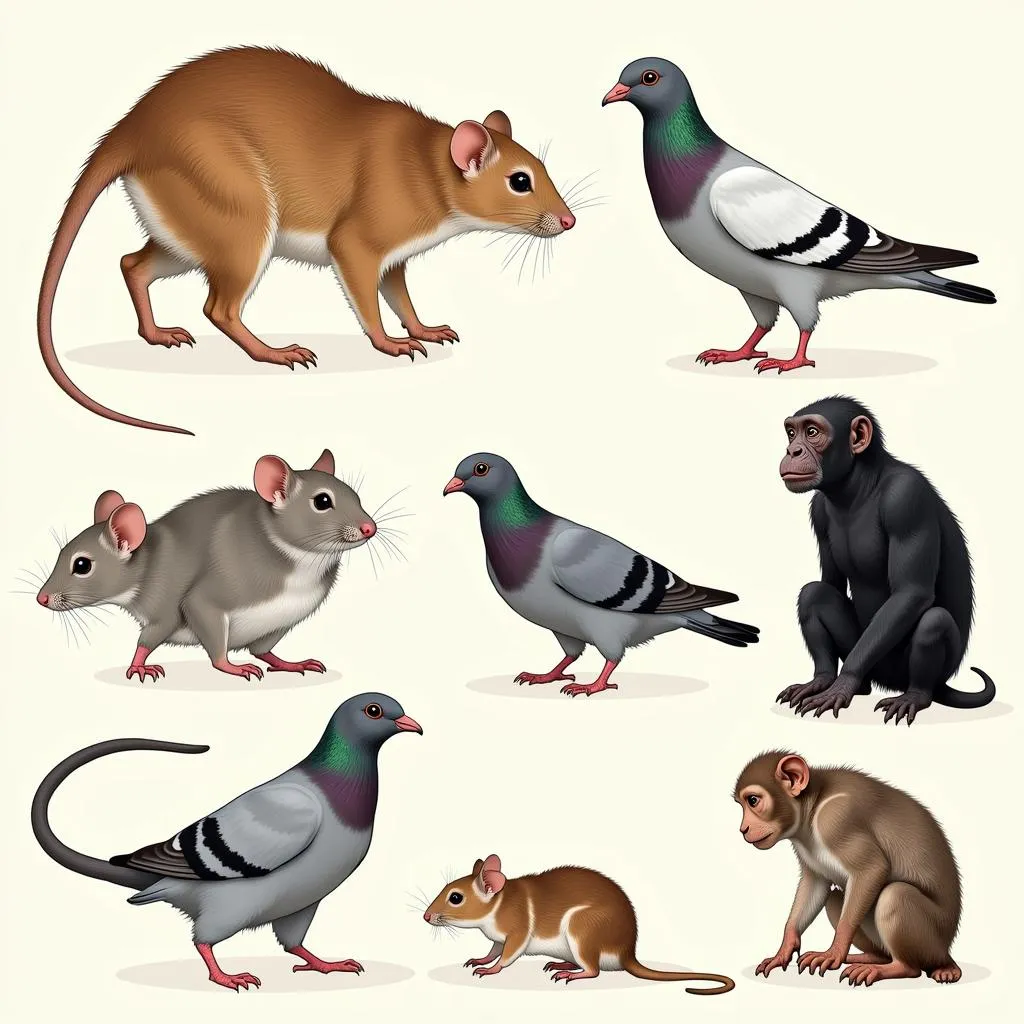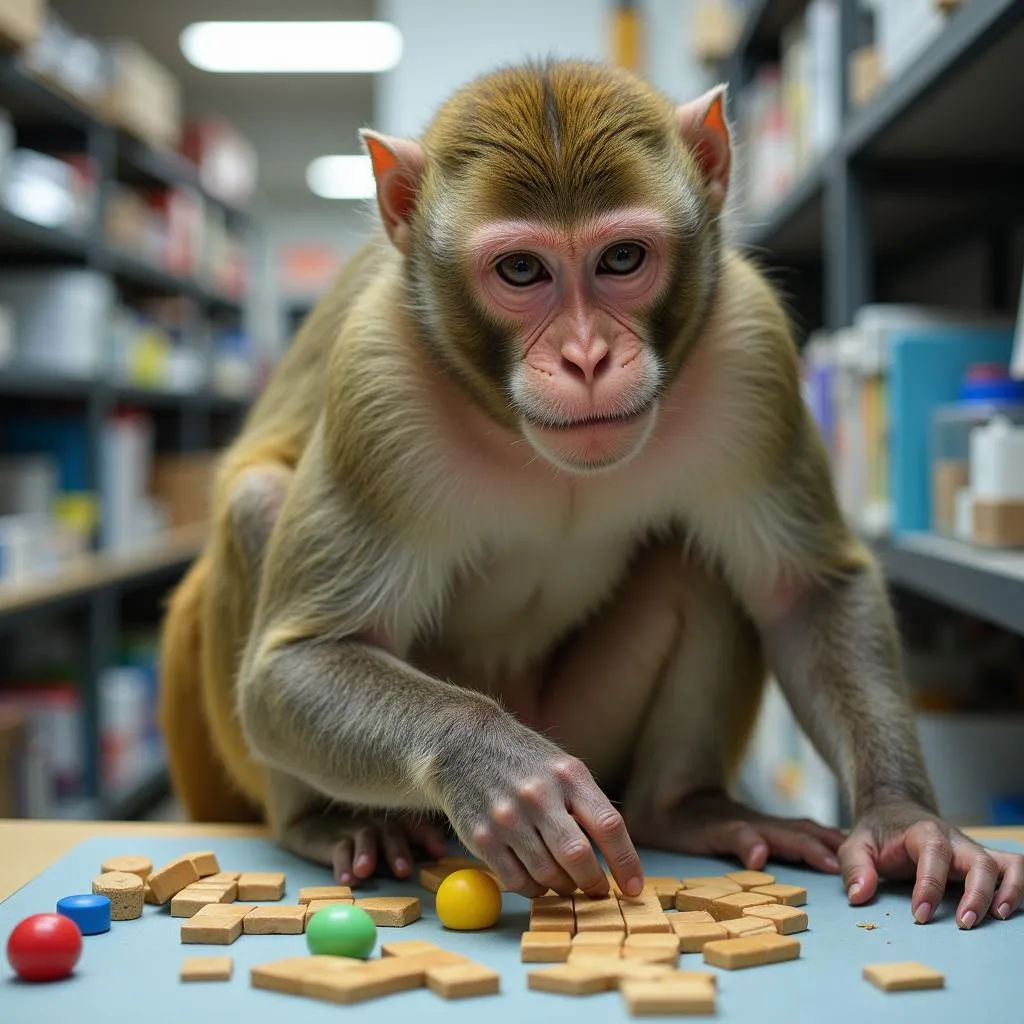When we think of psychological research, images of Sigmund Freud and his infamous couch often come to mind. But what about our furry, feathered, and scaled counterparts? The animal kingdom plays a surprisingly significant role in unraveling the mysteries of the human mind. But Which Animals Are Most Commonly Used In Psychological Research, and why?
 Common lab animals used in psychology research
Common lab animals used in psychology research
Understanding the Role of Animals in Research
Before diving into the specifics, it’s crucial to understand why animals are essential for psychological research. While we share similarities with our animal counterparts, ethical considerations often prevent researchers from conducting certain types of studies on humans. Animals, with their varying levels of cognitive complexity, provide valuable insights into learning, memory, behavior, and even the biological underpinnings of mental health disorders.
Rodents: The Unsung Heroes of the Lab
At the forefront of psychological research are rodents, particularly rats and mice. Their genetic similarity to humans, short lifespans, and ease of handling make them ideal candidates for a wide range of studies.
- Learning and Memory: From navigating mazes to pressing levers for rewards, rodents have been instrumental in understanding the mechanisms of learning and memory.
- Addiction: Rodent models have provided invaluable insights into the neural pathways associated with addiction, paving the way for potential treatments.
- Stress and Anxiety: Researchers can induce stress and anxiety in rodents through controlled experiments, allowing for the study of behavioral and physiological responses.
 Rat navigating a maze in a learning experiment
Rat navigating a maze in a learning experiment
Birds: A Symphony of Learning and Cognition
Birds, particularly pigeons, have earned their place in the annals of psychological research, thanks to the groundbreaking work of B.F. Skinner. Their remarkable ability to learn through operant conditioning has been pivotal in shaping our understanding of behavior modification.
- Operant Conditioning: Pigeons quickly learn to associate specific behaviors with rewards or punishments, allowing researchers to study the principles of reinforcement and punishment.
- Visual Discrimination: With their exceptional eyesight, pigeons excel at visual discrimination tasks, providing insights into how the brain processes visual information.
Primates: Our Closest Relatives, Reflecting Our Complexity
Non-human primates, such as monkeys, share a close evolutionary relationship with humans, making them valuable subjects for studying complex cognitive processes. However, ethical considerations and stringent regulations govern their use in research.
- Social Behavior: Primates live in complex social structures, providing a window into social cognition, communication, and cooperation.
- Problem-Solving: Their advanced cognitive abilities allow researchers to study problem-solving, decision-making, and even tool use.
 Monkey engaging in a problem-solving task
Monkey engaging in a problem-solving task
Ethical Considerations: A Cornerstone of Animal Research
The use of animals in research is a topic of ongoing ethical debate. It’s crucial to acknowledge that researchers adhere to strict ethical guidelines to ensure the humane treatment of animals. The “3Rs” – Replacement, Reduction, and Refinement – form the foundation of ethical animal research.
- Replacement: Seeking alternatives to animal models whenever possible.
- Reduction: Using the minimum number of animals required for statistically significant results.
- Refinement: Minimizing any potential pain or distress experienced by the animals.
Conclusion
From rodents to primates, animals have played a crucial role in advancing our understanding of the human mind. Their contributions to psychological research have been instrumental in developing treatments for mental health disorders, understanding learning and memory, and unraveling the complexities of behavior. As we continue to explore the frontiers of psychology, ethical considerations and the responsible use of animal models will remain paramount in our quest to unlock the secrets of the brain.